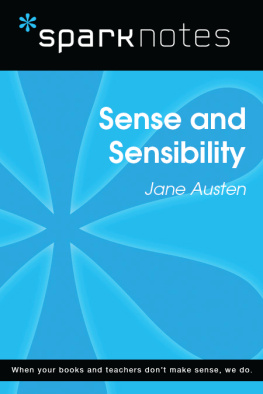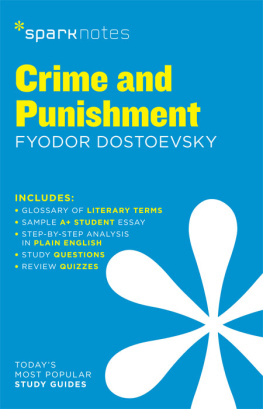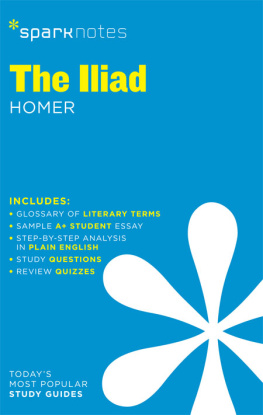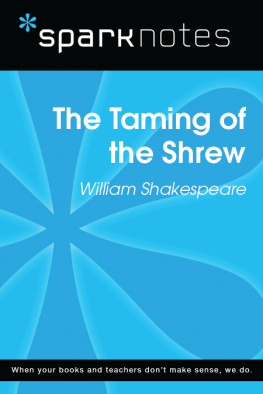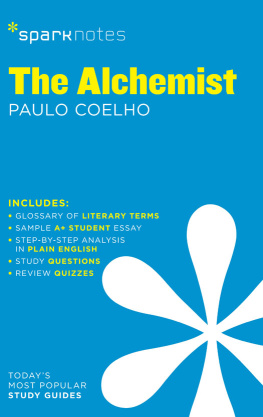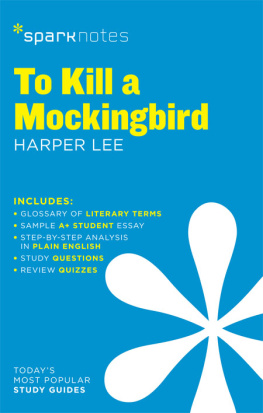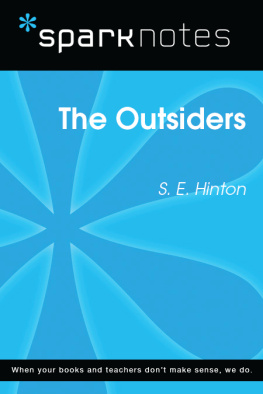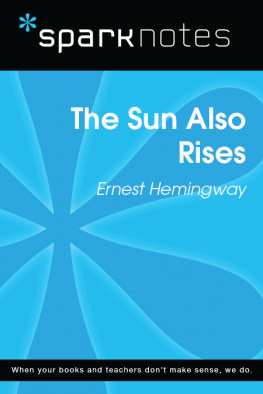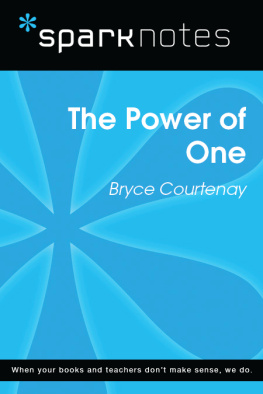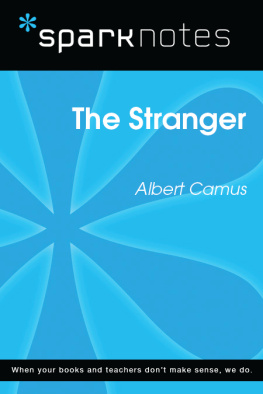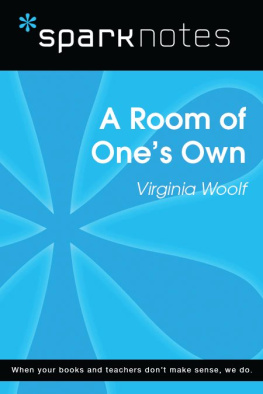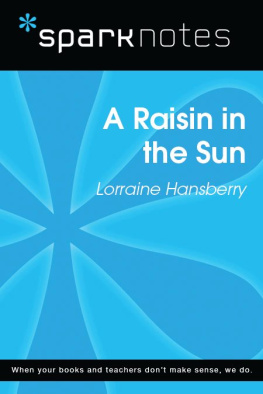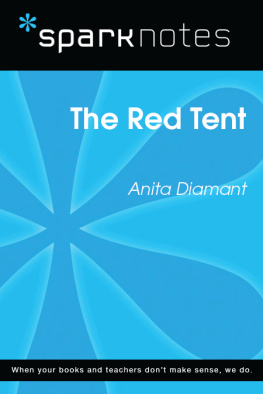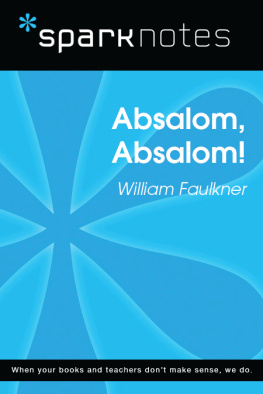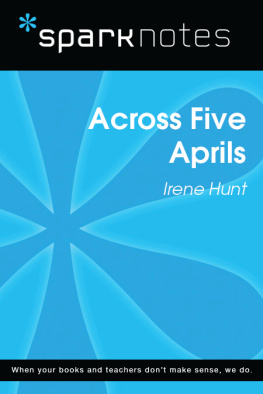Sense and Sensibility
Jane Austen
2003, 2007 by Spark Publishing
This Spark Publishing edition 2014 by SparkNotes LLC, an Affiliate of Barnes & Noble
All rights reserved. No part of this publication may be reproduced, stored in a retrieval system, or transmitted in any form or by any means (including electronic, mechanical, photocopying, recording, or otherwise) without prior written permission from the publisher.
Sparknotes is a registered trademark of SparkNotes LLC
Spark Publishing
A Division of Barnes & Noble
120 Fifth Avenue
New York, NY 10011
www.sparknotes.com /
ISBN-13: 978-1-4114-7751-3
Please submit changes or report errors to www.sparknotes.com/.
10 9 8 7 6 5 4 3 2 1
Context
In 1811, Sense and Sensibility became the first published novel of the English author Jane Austen (1775-1817). The first version of the novel was probably written in 1795 as an epistolary novel (novel in letters) entitled "Elinor and Marianne." At this point, Austen was still living in the home of her father, George Austen, a local Anglican rector and the father of eight children. She rewrote the early manuscript in 1797-98 as a narrated novel and then further revised it in 1809-10, shortly after she moved with her mother and sister Cassandra to a small house in Chawton on her brother Edward's estate. In 1811, Thomas Egerton of the Military Library in Whitehall accepted the manuscript for publication in three volumes. Austen published on commission, meaning she paid the expenses of printing the book and took the receipts, subject to a commission paid to the publisher. The cost of publication was more than a third of her household's 460-pound annual income, so the risk was substantial. Nonetheless, the novel received two favorable reviews upon its publication, and Austen made a profit of 140 pounds off the first edition.
When the first edition of Sense and Sensibility was published, it sold out all 750 copies by July 1813, and a second edition was advertised in October 1813. The first edition was said only to be "by a lady." The second edition, also anonymous, contained on the title page the inscription "by the author of Pride and Prejudice," which had been issued in January 1813 (though Austen had not been credited on the title page of this novel either). Only Austen's immediate family knew of her authorship of these novels. And although publishing anonymously prevented her from acquiring an authorial reputation, it also enabled her to preserve her privacy at a time when entering the public sphere was associated with a reprehensible loss of femininity. Indeed, Austen used to write at Chawton behind a door that creaked when visitors approached; she would avail herself of this warning to hide her manuscript before they entered. Austen may have wanted anonymity not only because of her gender and a desire for privacy, but because of the more general atmosphere of repression pervading her era: her early writing of Sense and Sensibility coincided with the treason trial of Thomas Hardy and the proliferation of government censors as the Napoleonic War progressed. Whatever the reasons behind it, Austen's anonymity would persist until her death until 1817.
Contemporary critics of Austen's novels tended to overlook Sense and Sensibility in favor of the author's later works. Mansfield Park was read for moral edification; Pride and Prejudice was read for its irony and humor; and Emma was read for its subtle craft as a novel. Sense and Sensibility did not fall neatly into any of these categories, and critics approached it less eagerly. However, although the novel did not attract much critical attention, it sold well, and helped to establish "the author of Pride and Prejudice" as a respected writer.
Only in the twentieth century have scholars and critics come to address Sense and Sensibility's great passion, its ethics, and its social vision. In recent years, the book has been adapted into feature films. Today, the three-volume novel by an anonymous lady has become a famed and timeless favorite.
To read further about the life and works of Jane Austen, see the SparkNotes on Pride and Prejudice, Emma, and Mansfield Park.
Summary
When Mr. Henry Dashwood dies, leaving all his money to his first wife's son John Dashwood, his second wife and her three daughters are left with no permanent home and very little income. Mrs. Dashwood and her daughters (Elinor, Marianne, and Margaret) are invited to stay with their distant relations, the Middletons, at Barton Park. Elinor is sad to leave their home at Norland because she has become closely attached to Edward Ferrars, the brother-in-law of her half-brother John. However, once at Barton Park, Elinor and Marianne discover many new acquaintances, including the retired officer and bachelor Colonel Brandon, and the gallant and impetuous John Willoughby, who rescues Marianne after she twists her ankle running down the hills of Barton in the rain. Willoughby openly and unabashedly courts Marianne, and together the two flaunt their attachment to one another, until Willoughby suddenly announces that he must depart for London on business, leaving Marianne lovesick and miserable. Meanwhile, Anne and Lucy Steele, two recently discovered relations of Lady Middleton's mother, Mrs. Jennings, arrive at Barton Park as guests of the Middletons. Lucy ingratiates herself to Elinor and informs her that she (Lucy) has been secretly engaged to Mr. Ferrars for a whole year. Elinor initially assumes that Lucy is referring to Edward's younger brother, Robert, but is shocked and pained to learn that Lucy is actually referring to her own beloved Edward.
In Volume II of the novel, Elinor and Marianne travel to London with Mrs. Jennings. Colonel Brandon informs Elinor that everyone in London is talking of an engagement between Willoughby and Marianne, though Marianne has not told her family of any such attachment. Marianne is anxious to be reunited with her beloved Willoughby, but when she sees him at a party in town, he cruelly rebuffs her and then sends her a letter denying that he ever had feelings for her. Colonel Brandon tells Elinor of Willoughby's history of callousness and debauchery, and Mrs. Jennings confirms that Willoughby, having squandered his fortune, has become engaged to the wealthy heiress Miss Grey.
In Volume III, Lucy's older sister inadvertently reveals the news of Lucy's secret engagement to Edward Ferrars. Edward's mother is outraged at the information and disinherits him, promising his fortune to Robert instead. Meanwhile, the Dashwood sisters visit family friends at Cleveland on their way home from London. At Cleveland, Marianne develops a severe cold while taking long walks in the rain, and she falls deathly ill. Upon hearing of her illness, Willoughby comes to visit, attempting to explain his misconduct and seek forgiveness. Elinor pities him and ultimately shares his story with Marianne, who finally realizes that she behaved imprudently with Willoughby and could never have been happy with him anyway. Mrs. Dashwood and Colonel Brandon arrive at Cleveland and are relieved to learn that Marianne has begun to recover.
When the Dashwoods return to Barton, they learn from their manservant that Lucy Steele and Mr. Ferrars are engaged. They assume that he means Edward Ferrars, and are thus unsurprised, but Edward himself soon arrives and corrects their misconception: it was Robert, not himself, whom the money-grubbing Lucy ultimately decided to marry. Thus,x Edward is finally free to propose to his beloved Elinor, and not long after, Marianne and Colonel Brandon become engaged as well. The couples live together at Delaford and remain in close touch with their mother and younger sister at Barton Cottage.

